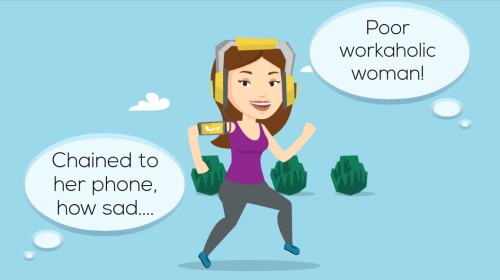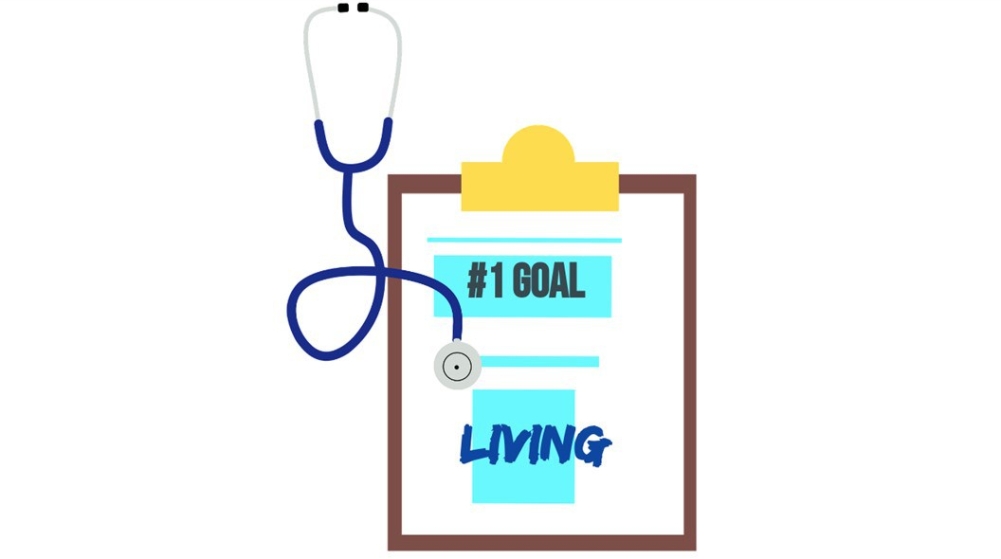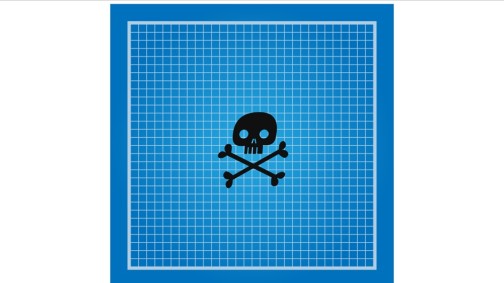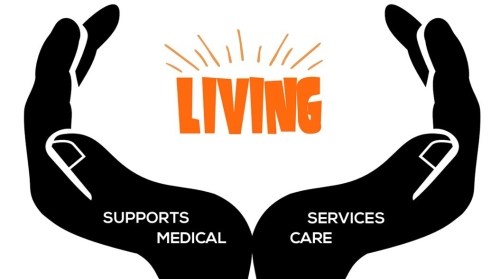I like to run. I’m pretty sure that, when I am running, people around me think I am one of those workaholic types who can’t put the phone down for a second. “What is wrong with this woman,” they say. “She is running around talking into that phone – she can’t even take a break from her phone long enough to just run. Poor woman.”

I want to set the record straight, running voyeurs. You see, when I run, my brain runs. And I have to catch the elusive thoughts that are running through and out of my brain, because I will otherwise lose them. So, I run around with my phone, and I periodically talk into it to record my thoughts. So stop worrying about me, running voyeurs. I have work/life balance, trust me.
Now that I have explained myself, here is the result of one of my running musings. Time will tell if it is interesting, or just the result of a lack of oxygen.
I have a dream. I want to see a paradigm shift in the way we care for each other as we age. In particular, we need to change care systems (like nursing homes and assisted living but also other types of care systems) to communities where people can LIVE well, and the focus on their medical care is supportive (perhaps secondary?) to their LIVING rather than medical care being the goal in itself.

If a person who has grown older needs various supports, healthcare communities come up with a plan for that person, often called a service or care plan. They are primarily medical or healthcare services, like what type of medication a person needs and when, what type of help they might need with everyday personal tasks like bathing or dressing. It is all important.
However, this becomes the blueprint for a person’s existence. What I mean by this is that a person’s life might entirely be made up of, and driven by, these care tasks. This is what we intend to do for this person for their remaining time. These plans can be tinged by a sense of maintenance, of keeping people alive, but not people LIVING. This is why elders have told me they feel like death plans.

Can we try something different? How about we come up with LIVING plans, instead of death plans. What does this mean?
Think of yourself. If you had to create a plan for what you wanted your life to look like, for how you want to live, what would it say? What do you want to see happen for yourself? I am sure it would not say, “I would like to take showers, eat food, take my medication, and just keep doing that until the end.”
Maybe it is not effective to simply ask an elder, “What do you want to do with your life?”, although this is a valid question. Sadly, this might be perceived as silly by elders themselves, because it is not something we ask elders very often, and elders become unaccustomed to thinking this way. Perhaps we first need to create trust with, and build confidence in, elders that it is acceptable (actually, expected and encouraged) to want things from their lives, to look towards the future, to want something more than a life of maintenance.
I have seen elders become nihilistic and institutionalized, not necessarily because they are living in institutions, but because they have become confined in their thinking. Elders might not dare to hope or dream anymore. Why? Do they not think things are possible for them? Do they feel this is not their right “anymore”? How do “we” in the field of aging possibly discourage hoping and dreaming for the future? There is much emphasis on reminiscence and life review, but do we pay enough attention to who elders are now, who they want to be, and what they want from life?
Elders need people jumping up and down for them. They need to be encouraged to hope and dream. To seek and ask for those things that drive their lives.

These things might not be big things, although they could be. It might be that an elder’s hopes and dreams are to be still, to appreciate the small things, to quietly think, and to watch. They are no less important than an elder’s wishes to take a hot air balloon ride, climb a mountain, meet Oprah, paint, write, travel, be with family, etc. Perhaps an elder wants their LIVING to be about sharing what they have learned, and supporting others in their LIVING. An elder’s hopes might even include planning for death, a death that is reflective of their wishes. These are important desires.
It is not the nature of these desires in a LIVING plan that is the point. It is that we need to be finding out what they are, starting from a place of what is important to people. THEN, we can determine what supports a person needs to carry out their LIVING plan. THEN, we can figure out what medications a person needs/wants and when they take them. THEN, we can figure out what type of help a person needs during their day to accomplish the things they want. THEN, these important medical and health services can enable the LIVING.

We can start by being curious about elders, finding out who people are and what is important to them, and building upon that. Let’s let them know that their LIVING is important and we want to hear their plans for it.

This is outstanding…I LOVE it!!!! We need to make it more than a dream. It needs to be the reality for every Elder!
LikeLiked by 1 person
I agree! I was talking to a friend & colleague this morning, who also happens to be an elder, and she was saying how she sees older people all the time who seem to have “shrunken”, not physically, but in terms of how they see themselves and their value. This is not a factor of aging itself, this is external – social, environmental….
LikeLike
Nice post Sonya. Your story about running reminds me to believe none of what we hear and half of what we see!
I submit that we don’t wait for a person to become an elder to begin having this conversation. All of us need to give thought to how we think, dream, hope and live continually as we age. That will make it much easier to implement the plan you outline for elders
. If you have not been thinking this way all your life, it will be foreign to begin to do it in old age. Possible, but more challenging. Just my thought today as I SIT, think, dream hope and live.
LikeLike
Yes!! This is something that is human and essential. Throughout our lives. I wonder, however, if this way of thinking is influenced by culture or religion. Perhaps particular cultures or religions would discourage hoping, dreaming, thinking about how we want to live????
P.S. I like to sit and think too. Especially with wine.
LikeLike
I think when I drive, or as I’m waking. If I didn’t capture those thoughts, they’d flit away.
Sense of well being. What does it take for each person to define and maintain their sense of well being? Slow medicine. Live until we die. Those and similar concepts are the paradigm shift we need to accomplish. We are in this together. To storehouse people because of age, need, or other types of abilities is not going to accomplish anything good at all.
LikeLike
Yes!! We are people, not products to be storehoused!
LikeLike
I love your graphics along with your words and thoughts.
I often see older adults in their homes and sometimes they seek more diagnosis and more medication. This is truly what they are looking for- It still truly amazes me sometimes. I think advertising is partially to blame.
And in healthcare we are still encouraged ,as providers, to identify people by diagnosis and find as many as possible ( mostly for re-imbursment). I have said to some of my patients in the past ” this is where I have to say as many bad things about you as I can so that I can get you qualified for your insurance to pay for or cover…” this or that( usually a treatment or test). Its crazy. Yes, we need a paradigm shift.
LikeLike
Thanks, Patti. That is a great example. It is almost more than ageism- it is an internalized belief that an elder holds that he or she IS his or her diagnosis, condition, healthcare needs. Certainly “the system” encourages this, albeit not necessarily with intent. But you are right, for reimbursement, or even assessment, we list all the “problems” and I suppose it is easy for an elder to begin to think that this is all she or he is about.
LikeLike
Exactly, Sonya. You hit the nail on the head. Lack of being allowed a purposeful, self- chosen existence and independence is the ONLY reason my 89 yr old father is resisting an assisted living situation. So, he remains in our too large family home, on a too large piece of property, occasionally falling, figuring out how to get up (luckily nothing major has happened…yet) and then calling me to tell me about it, if this occurs before my standard daily call. This really worries and bothers me, but as his doctors say, he is competent to make his own decisions and he seems not to appreciate my advice. So, like many children of elders, I remain watchful and near, with intervention as necessary. Your post really struck a chord. This topic needs more discourse in all communities. Thanks for another very thoughtful post and a lovely blog. I had no idea — will come back to visit soon. You are missed here in our neighborhood, but glad we can keep in touch! Keep on writing and most importantly, revisioning!
LikeLiked by 1 person